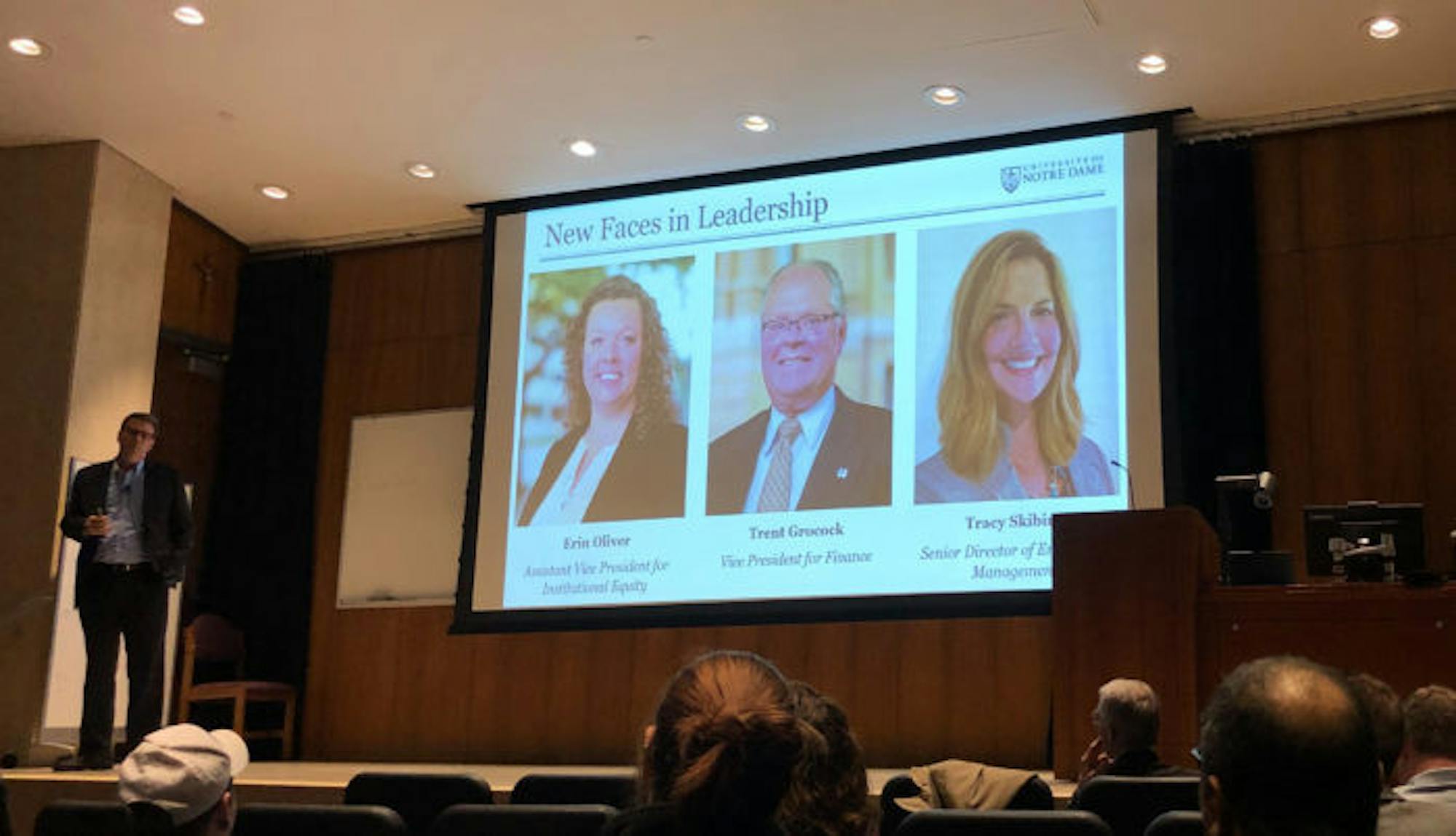In a series of four town halls Oct. 15-16, University President Fr. John Jenkins, Provost Tom Burish and Executive Vice President Shannon Cullinan aimed to present information to staff across all divisions and take questions.
Observer reporters covered three of the town halls, but were not present for the town hall that took place Tuesday at 1 p.m.
Throughout the town halls there was an emphasis on the importance of the University’s staff — staff makes “every facet” of the University work, Burish said.
During his portion of each town hall, Jenkins said the University is allocating more funds for financial aid, and emphasized the need for students from all income levels.
After some staff members took advantage of a voluntary early retirement package, Notre Dame has seen a 3% overall decrease in staff members in the past year. The University is redirecting those funds toward recruiting and supporting low-income Pell Grant students.
“We’re going to try to make education more accessible to lower-income families,” Jenkins said. “Wealsowanttoget5%ofourstudentsfromfirst-generationfamilies,families where neither of the parentshaveabachelor’sdegree.That’sgoingtorequirefinance.”
Cullinan went over the new building projects Notre Dame will be constructing and opening through summer 2022.
Additionally, regarding the 2020 presidential debate being hosted at Notre Dame next September, Jenkins said there would not be many tickets available, and he’ll likely give most of the tickets to students.
Staff were able to ask questions and raise concerns. One staff member, Donna Fecher of the aerospace and mechanical engineering department, asked a question regarding low salaries for staff members, and said many employees that are required to have bachelor’s degrees are being paid $750 more than the 2019 Federal poverty line.
“I did a little bit of research,” Fecher said. “You mentioned keeping up with our peer institutions. … The salary for administrative staff is not competitive with our peer institutions. The average salary for our peer institutions is between $38,000 and $45,000. There are four positions listed on Notre Dame job boards currently, some of which start at $12.86 an hour. That equates to a $26,000 a year salary, which is only $750 higher than the 2019 poverty rate as stated by the Federal Government.”
In response, Fecher was told the University is working on year-long study of the same topic, and would be presenting information on it in the spring town halls.
Burish and Cullinan also addressed Notre Dame’s building services, campus safety, facilities, and enterprises and events teams on Wednesday night in the Carey Auditorium. Both Burish and Cullinan thanked the staff for their hard work and informed them of recent and upcoming campus changes.
At the end of the town hall presentation, one staff member expressed concern of the expansion of the University and shortage of staff.
Cullinan sought to gather input on this point from attendees in the audience.
“How do we get better at this?” he asked. “… Can we change the priority of the work?”













